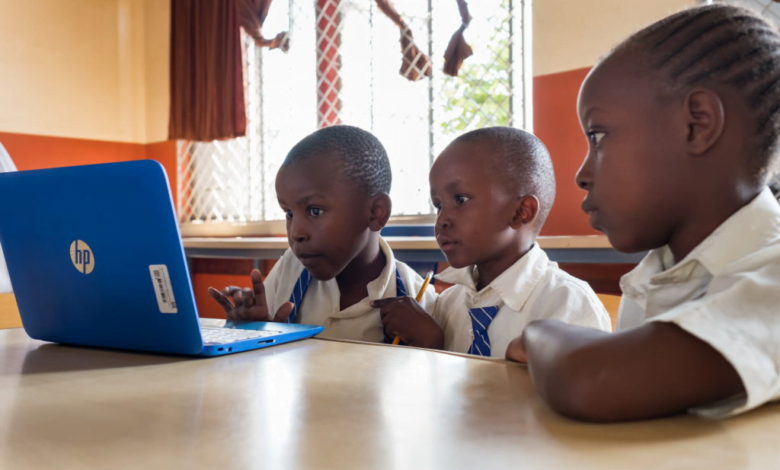eLearning Africa 2024 : Africa in search of innovative digital solutions to transform its educational system
The 17th edition of eLearning Africa was held from May 29 to 31, 2024, in Kigali, the capital of Rwanda. As a "cradle of ideas, innovations, and new solutions for education, training, and skills development in Africa," it confirmed the rise of eLearning in Africa while highlighting the challenges. Yet, the continent also positions itself as a land of innovation!

By Aimable Twahirwa, in Kigali
1.5 billion dollars. This is the value of the distance learning market in Africa by 2030, according to the consulting firm Ambient Insight. Figures that speak volumes about the potential. In Africa, even though challenges like internet access in certain areas need to be addressed, it is generally acknowledged that e-learning is clearly the future of education. Both for the flexibility it allows and the possibility of offering more modern options to learners.
“Democratizing” distance learning was the guiding thread of the 17th edition of eLearning Africa, held from May 29 to 31, 2024, once again in Kigali, often dubbed the “City of Innovation in Africa” for its initiatives in ICT and innovation. The theme of the event, “Education as a Driver of Innovation and Investment as a Catalyst for Skills: The Rapid Evolution of Africa,” aligns with global changes and Africa’s commitment to the African Union’s Agenda 2063. The idea is to position education as a development driver through digital tools.
Preparing all learners for the technological revolution of the 21st century and beyond

“eLearning Africa 2024 reaffirms the continent’s commitment to adopting digital technologies to revolutionize education and skills development,” recalls Rebecca Stromeyer, CEO and founder of eLearning Africa. “By fostering cross-sector collaborations, we aim to stimulate innovation in digital learning, equipping young Africans with the skills to become leaders in the digital age.”
“There is a growing need today to adopt a blended learning mode to promote wider access to quality education and the resilience of educational systems, in order to prepare all learners for the technological revolution of the 21st century and beyond,” notes Claudette Irere, the Rwandan Minister in charge of ICT and TVET.
African countries need to democratize the use of digital educational resources to rejuvenate their educational systems

Bekere Amassoma, Program Manager Africa at Oracle Academy “African countries need to democratize the use of digital educational resources to rejuvenate their educational systems,” observes Bekere Amassoma, Africa Program Manager at Oracle Academy. Oracle Academy offers free online resources to help students develop their technological skills. Since the COVID-19 pandemic, Oracle Academy has been offering a comprehensive and free program on database management techniques, the use of remote computer servers, artificial intelligence, and machine learning. These initiatives aim to popularize essential technological knowledge for distance education in Africa.
Bekere Amassoma states that several factors demonstrate the transformative potential of digital technology for education in Africa: “In Africa, there are several key success factors showing how digital technology holds the greatest potential for transforming education.” For example, free access to remote computer servers allows teachers and students to transfer data quickly, facilitating distance learning. Oracle Academy also offers digital platforms providing access to a multitude of online resources, including manuals, videos, interactive exercises, and open online courses (MOOCs). “This helps bridge the gap when physical resources are limited or outdated, especially in isolated areas across the continent,” adds Amassoma.
Jacqueline Umurerwa, a teacher and school leader at Kanombe School Group near Kigali, recognizes that in Rwanda, one of the main challenges of distance education lies in accessibility and connection to online resources, especially for remote regions. In fact, according to a recent UNESCO report, one of the major issues facing most countries in sub-Saharan Africa is the digital infrastructure needed to facilitate access to resources, learning processes, and assessments. Some experts recommend systems with strong offline functionality as a long-term solution to energy deficits and limited internet access.
Among these solutions, the installation of mirror servers, an innovation proposed by the Francophone Digital University, aims to strengthen virtual teaching in isolated regions. Pierre-Francois Descheerder, head of ICT and Information and Communication Technologies for Education (ICTE) at the University of Artois in France, explains: “Mirror server technology allows students to follow and participate in courses and access multiple online resources, even with weak or cut-off connections, thanks to a local server.” To overcome these difficulties, the Francophone Digital University proposes internal systems specific to African universities, where distance learning could gradually replace the traditional face-to-face system.
Collaboration between African countries and international partners is essential to share best practices, resources, and technological innovations
Experts predict that the continent could become a global leader in educational technologies if governments and institutions continue to promote and support these initiatives. Bekere Amassoma emphasizes the importance of regional and international cooperation to accelerate this process: “Collaboration between African countries and international partners is essential to share best practices, resources, and technological innovations.”
The integration of emerging technologies such as artificial intelligence, virtual and augmented reality, as well as blockchain systems for skill certification, is envisaged as the next step to radically transform education in Africa. These technologies could not only improve access to education but also make it more interactive, personalized, and tailored to the specific needs of learners.
Jacqueline Umurerwa is hopeful: “By overcoming current obstacles, we can provide quality education to all children, regardless of their place of residence. This will require continuous investments in infrastructure, teacher training, and technological innovation.” She adds, “Improving the quality of distance learning outcomes must not only involve a change in mindset but also the strengthening of teachers’ capacities.”






